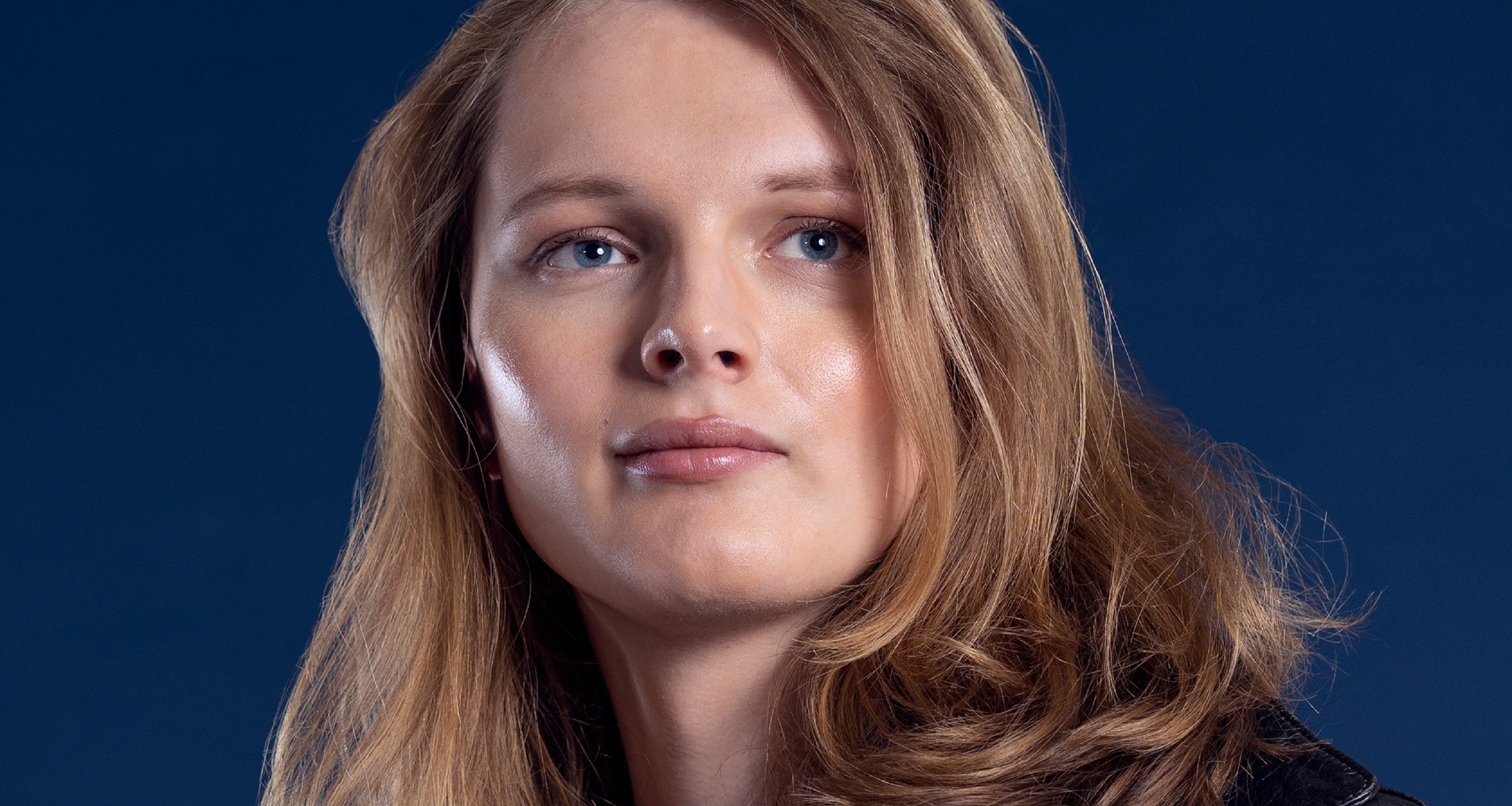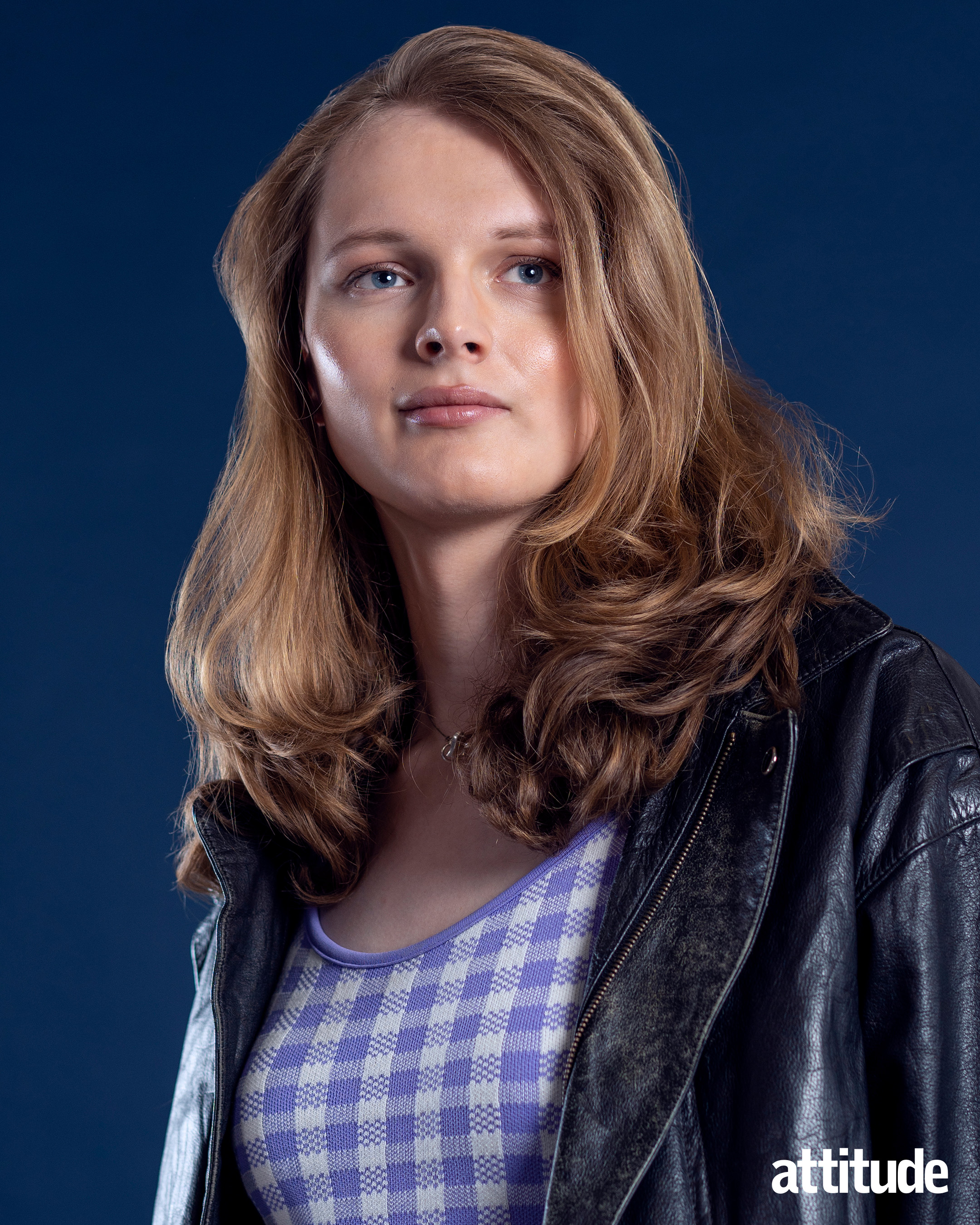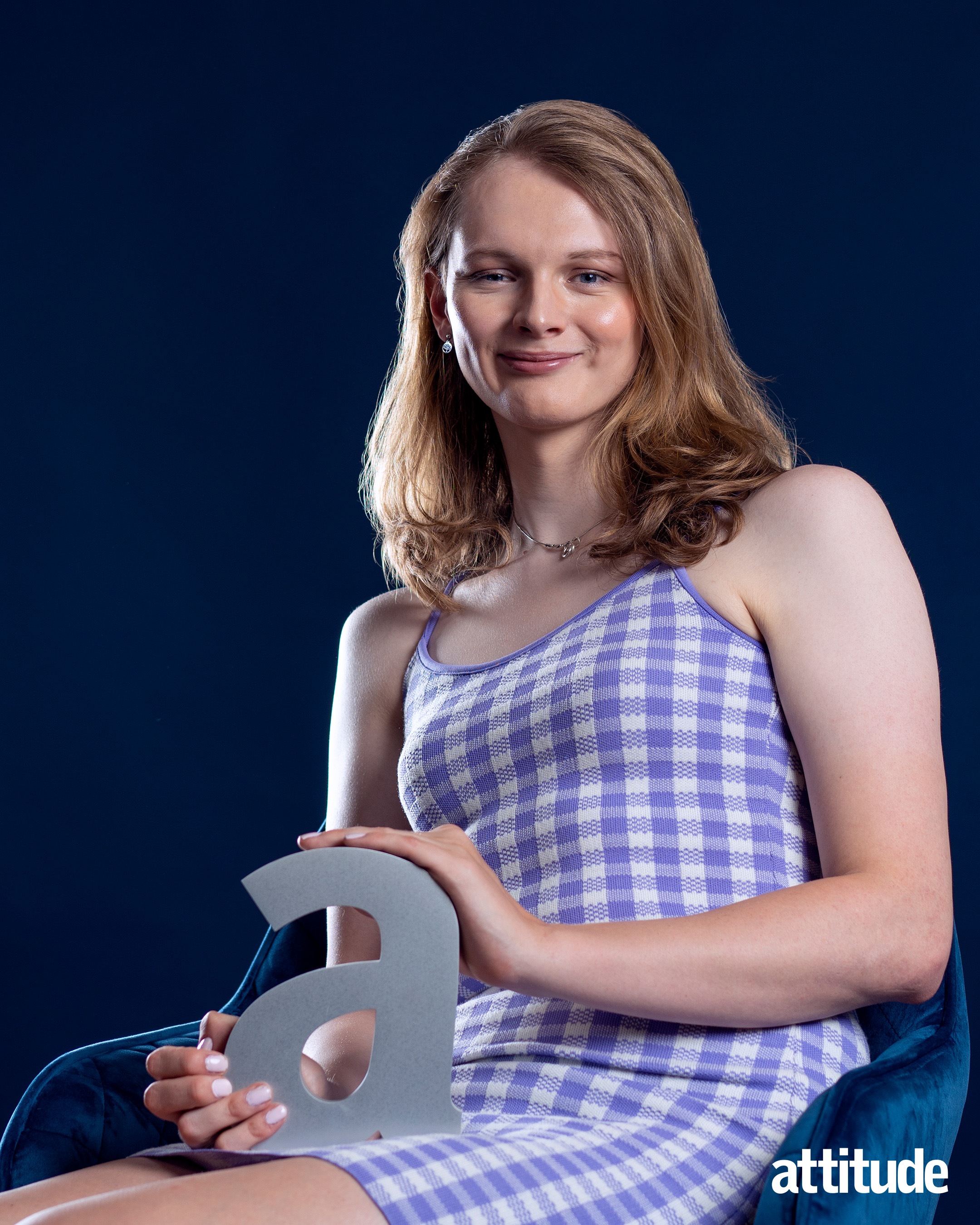Cyclist Emily Bridges is pushing past transphobia to achieve her dreams
The cyclist is among the everyday LGBTQ heroes honoured at the Attitude Pride Awards 2022, in association withMagnum.

Words: Jamie Tabberer; Photography: Markus Bidaux
“I was 10 when I first started cycling,” remembers 21-year-old Emily Bridges, from Wales. “This feeling of freedom — I hadn’t felt it before. I still feel amazing when I’m out riding. It’s like meditation for me.”
It was around half her lifetime ago, too, that Emily began “exploring my gender, and that I might be different from other people”. Little did the then tweenager know that, within a decade, she’d be one of the most exciting faces in cycling — and also one of the most bullied trans women in the country.
Revealing her advanced maturity and determination, Emily made British Cycling’s senior academy in 2019, while still in her teens. (She came out publicly as trans in 2020.)
“I’ve got multiple national medals in track cycling,” she tells Attitude, without a hint of the arrogant showmanship that surrounds some precocious young sports stars. “I won a national championship with a broken ankle — I don’t know how me or other people didn’t realise it was broken… It was hurting, but I [didn’t know]!”
All the while, she was also applying herself to her education and is currently reading French and politics at the University of Nottingham. “I’m really enjoying it, especially with the political climate as it is at the moment!” she smiles.
Then, with solemn resignation, she explains that she’ll be “taking a year away from university to get my head in check” come September.
In the first half of this year, Emily unwittingly found herself at the centre of a bitter conflict that not only impacted her uni experience but quite literally derailed her sporting career — a devastating blow for a cyclist entering their athletic prime.
“At the start of 2022, I was in conversation with British Cycling around entering the National Road Championships,” she explains. Her wish? To compete as a woman. “They gave all the clearance for that to me. I was on the entry list.
“Then someone leaked it to the national press that I was racing. Everything blew up in my face. It was everywhere. British Cycling had already asked the international cycling governing body, UCI [Union Cycliste Internationale] about regulations, but it took them until the Wednesday before I was supposed to race to come back and say, basically, I couldn’t — that I’d have to follow their guidelines because they classed the National Championship as an international event. So that stopped me from racing.”

British Cycling suspended its own trans policy shortly after.
The UCI’s latest trans policy, introduced in June, extends competitors’ transition period on low testosterone to 24 months. (It was previously 12 months). “This means it’ll be [another] year before I can race,” explains Emily.
The UCI also halved the maximum permitted plasma testosterone level from five nanomoles per litre to 2.5. “A lot of the wording and the way the guidelines have been formatted — it feels like they’re trying to put off trans people,” Emily says. “There are a lot of complexities and weird loopholes that I feel have been put in there to catch people out.”
As she watched various goals evaporate, including selection for the 2022 Commonwealth Games, Emily’s story spread like wildfire across a media landscape hostile to trans people. Little of the coverage spared a thought for the young woman — indeed, the human being — who was suddenly a lightning rod for a wider, years-long row.
“I knew there was going to be a lot of coverage, but I never thought it would get as big as it did,” she says. “It’s been tough, because suddenly everyone has an opinion on you. On your body, how you look — on your rights. It’s surreal for tens of thousands of people to be commenting on that.
“I had to shut down social media for three weeks. I had journalists turn up at my front door. I thought complete strangers might show up. It was scary and created a lot of paranoia for me. I’m still very wary when I go out. It was really tough, mentally. There were some quite dark thoughts. But luckily, I’m mostly through that.”
There was positivity from some quarters. “I got a lot of support from my family and friends, and there were some positive responses from fellow athletes, as well as LGBTQ sports organisations,” she admits.

She landed a cover interview with DIVA, the magazine for LGBTQ+ women. She continues to cycle, despite “basically, all mainstream races [being] taken away from me for the year. Luckily, there have been inclusive races I’ve been able to do, which have been amazing, and made me fall in love with cycling again.
“Because, after everything, and how toxic it got, I was ready to walk away. I’m surer, now, that cycling is inclusive in places. But there’s a long way to go.” She’s even “thinking of different goals for myself.”
“I’m still an athlete and want to use what I’m good at, and my platform, to promote good. So, I’m in the process of organising more charity rides to try and bring some positivity.”
It’s impossible not to be impressed by this rising star’s grace and serenity in the face of hostility, not least when asked for her message to opponents of trans inclusion in sport who could perhaps be won around.
“I understand a lot of the pain people are feeling around this — they’re saying this is being pushed on them by patriarchal structures,” she states. “But we’re fighting against the same structures. There needs to be solidarity and discussion.”
She is similarly self-possessed when asked what advice she would pass on to other young LGBTQ sportspeople. “You’re welcome in sport; you’re loved; there’s support for you out there; things will change.”
It’s for this fantastic, well, attitude, that’s we’re giving Emily an Attitude Pride Award. “It means a lot to me, to be recognised by the LGBTQ community and by such a big publication,” she admits. “I’m honoured.”
The Attitude September/October issue is available to download and order in print now and will be on newsstands from Thursday 4 August.

